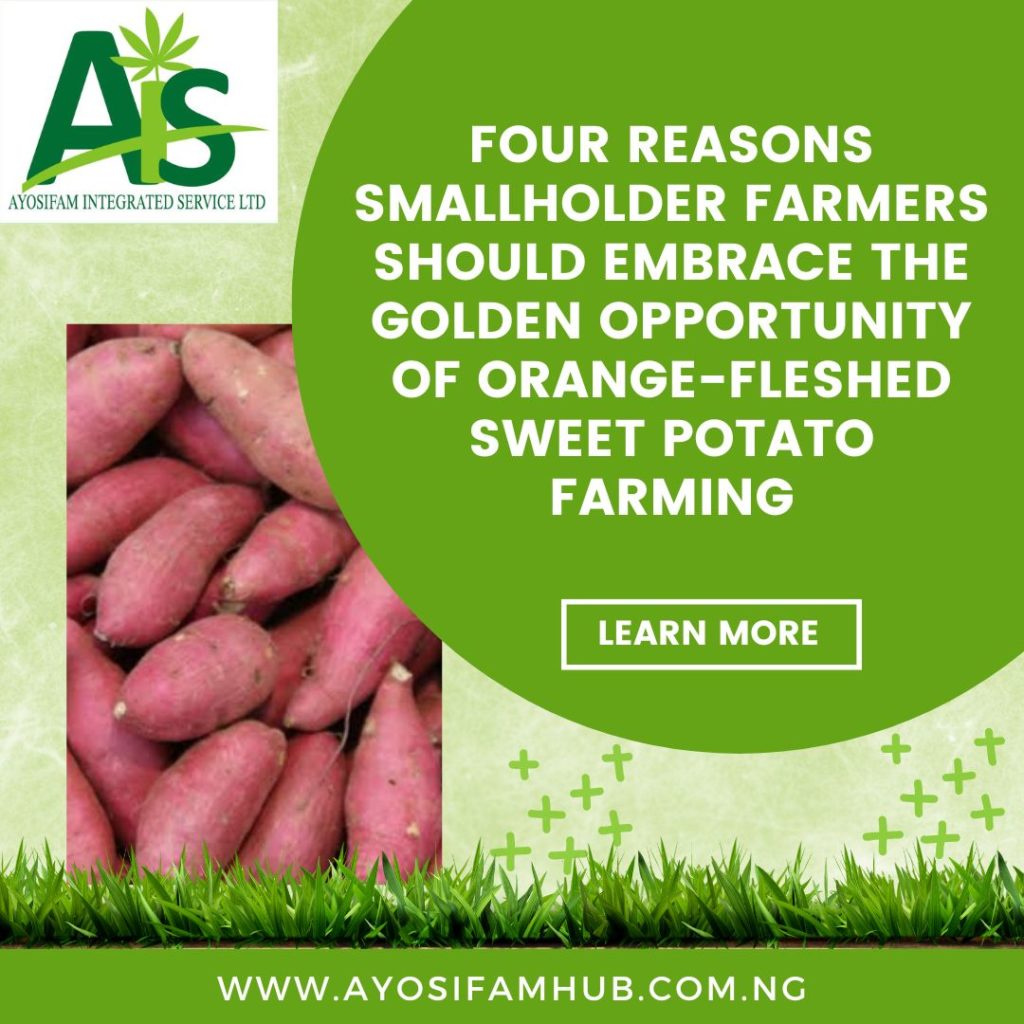For smallholder farmers striving for improved livelihoods and food security, the orange-fleshed sweet potato (OFSP) presents a compelling and increasingly vital opportunity. Beyond its vibrant colour, this biofortified crop offers a wealth of advantages, particularly its notable shelf life, which empowers farmers to navigate market fluctuations and secure better returns. Let’s delve into four key reasons why embracing OFSP farming can be a game-changer for smallholder communities.
Firstly, OFSP is a nutritional powerhouse. Unlike its white or yellow-fleshed counterparts, OFSP is exceptionally rich in beta-carotene, a precursor to Vitamin A. This essential nutrient plays a crucial role in vision, immune function, and growth, making OFSP a powerful tool in combating Vitamin A deficiency, a prevalent health concern in many developing regions. By cultivating OFSP, smallholder farmers not only improve their own family’s health but also contribute to the nutritional well-being of their communities.
Secondly, OFSP offers significant yield potential and adaptability. This resilient crop thrives in diverse agro-ecological zones and often requires less demanding inputs compared to other staple crops. Its ability to tolerate marginal soils and varying rainfall patterns makes it an attractive option for farmers facing the challenges of climate change. Higher yields translate directly to increased food availability for households and greater surplus for market sales.
Thirdly, and crucially, OFSP boasts a longer shelf life compared to other root and tuber crops. This characteristic is a game-changer for smallholder farmers who often lack adequate storage facilities. While crops like cassava or yams can deteriorate rapidly after harvest, OFSP can be stored for a considerably longer period under proper conditions. This extended shelf life provides farmers with greater flexibility in selling their produce. They are no longer forced to offload their harvest immediately at potentially low prices during peak season. Instead, they can strategically time their sales to coincide with higher market demand, thereby maximizing their profits and income.
Finally, the growing demand for nutritious and value-added products creates a favorable market for OFSP. Increasing awareness of the health benefits of Vitamin A has led to a rise in consumer preference for OFSP. Furthermore, its versatility allows for the development of various processed products, such as flour, bread, and snacks, opening up new avenues for income generation beyond the raw tuber. By embracing OFSP, smallholder farmers can tap into these expanding markets and diversify their income streams.
In conclusion, the orange-fleshed sweet potato offers a powerful combination of nutritional benefits, resilient growth, extended shelf life, and promising market opportunities. For smallholder farmers, adopting OFSP farming is not just about cultivating a crop; it’s about investing in the health and economic well-being of their families and communities, empowered by a crop that doesn’t perish quickly and allows them to reap the rewards of their hard work at a reasonable market price.




